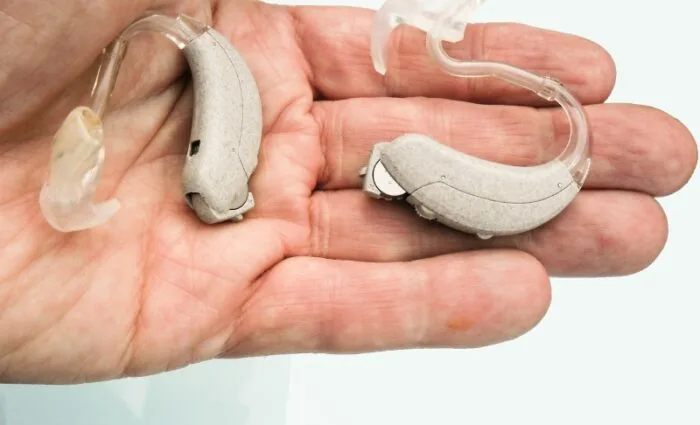To help keep your hearing aids functioning effectively for years to come, you’ll want to learn proper care and maintenance. And although it may feel like an additional burden, with the right process your hearing aid care will come to be easy and automatic.
The key is establishing productive habits.
If you incorporate your hearing aid care into your everyday and nightly routines, before too long it won’t feel like any additional work at all.
Below are a few tips for the day-to-day care of your hearing aids (which your hearing specialist will also review with you) :
Clean your hearing aids on a daily basis
Attempt to incorporate your hearing aid cleansing into your evening routine, so it becomes as automatic as brushing your teeth. Daily cleaning is essential because daily hearing aid cleansing can thwart the accumulation of earwax, dirt, and dust into the different components of the hearing aid, which can result in distorted sound with time.
You’ll want to clean your hearing aid with a smooth, dry cloth, while averting any kind of fluids that can damage the hearing aid electronics. Consult with your hearing professional for special guidance on cleaning each type of hearing aid.
You might also consider purchasing a hearing aid sanitizer, which makes use of ultraviolet light to safely and thoroughly kill harmful pathogens. Hearing aid cleaning kits are also available with all of the instruments you’ll need to safely clean the device without causing harm to the electronics.
Always check the batteries
Hearing aid batteries should always be tested and replaced regularly to ensure top hearing aid functionality. Consider using a battery tester early in the day to assure you have adequate power for the remainder of the day, and carry an extra set of batteries on hand.
Before bedtime, when your hearing aids are not being used, shut them off and store them in a cool, dry location with the battery door open.
Store your hearing aids in a secure place
In regard to storage, you’ll want to try to remember three things:
- Keep the hearing aids away from moisture. This means that storing your hearing aids in the bathroom is probably a bad idea.
- Try to avoid subjecting the hearing aids—and hearing aid batteries—to temperature extremes. You’ll want to store your hearing aids in a cool, dry place.
- Avoid storing your hearing aids out in the open, where they can become damaged.
We highly recommend storing your hearing aids in a case or drying kit within the drawer of a bedroom side table. This will safeguard the hearing aids from moisture, temperature extremes, and damage from being pushed off the table.
Also, don’t forget to take out your hearing aids prior to taking a shower, swimming, or using a hair dryer or hair spray.
Maintain ear hygiene
Even though earwax has several advantageous characteristics, such as protection and lubrication of the ear canal, it can cause severe damage to your hearing aids. As it becomes wedged within the hearing aid components, sound can become distorted.
Make sure you’re sustaining proper ear hygiene, and if you experience excess earwax, think about scheduling a visit with a professional.
Properly insert your hearing aids
When putting in your hearing aids, lean over a table or soft surface in case the hearing aids fall. Hearing aids contain delicate electronics, so a fall on a hard surface could bring about severe damage.
Even with diligent cleaning and maintenance, over time the hearing aid will call for more detailed cleaning or repair.
To ensure that you consistently enjoy the best sound possible, we highly recommend getting your hearing aids professionally cleaned by a hearing specialist at the least two times a year.
Hearing care professionals will provide you with a deep cleaning, a tune-up, and will on occasion replace parts. Staying current on this regular maintenance will prolong the life of your hearing aids and will assure that you achieve the optimal sound.

